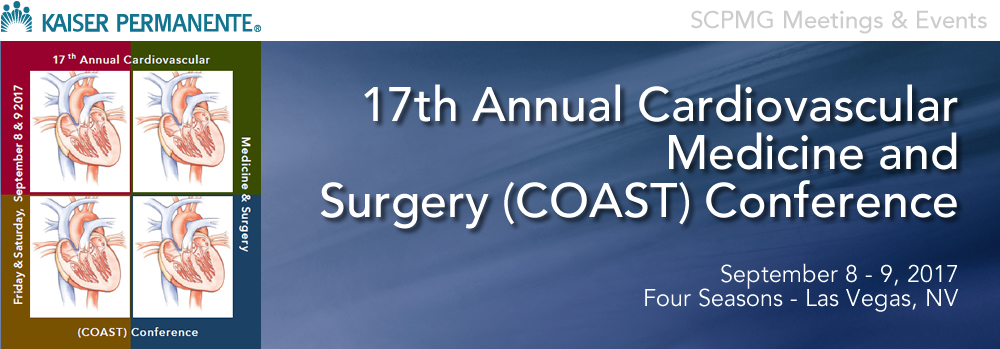| Learning Objectives | |||||
| Session Topic & Themes | Learning Objective/Desired Result At the end of this session, learners will be able to: |
||||
| Session I.
Innovations and Innovators in Cardiovascular Medicine - Past and Present |
Be up to date on how to assess an individual patient’s bleeding/ thromboembolism (risk/benefit) balance and practice ‘bridging’ based on each individual’s risk/benefit balance according to current evidence-based guidelines. Recite the most important and revolutionary milestones in the history of cardiovascular medicine, and through this knowledge perhaps be inspired to strive to join the ranks of innovator. Be aware of the most important new developments in the field and be able to make informed decisions on whether to adopt new procedures and treatments. (Cultural/Linguistic Competency) Recent data on ethnic-based studies (e.g., Multi-Ethnic Study of Atherosclerosis) will be presented and discussed. |
||||
| Session II.
Stroke Prevention in Atrial Fibrillation (SPAF) |
Will be able to decide when to use idarucizumab, when to give Non-Activated 4-Factor Prothrombin Complex Concentrate, and what to consider when giving these very costly and potentially harmful drugs. (Cultural/Linguistic Competency) |
||||
| Session III.
Management of the Cardiac Surgical (CS) Patient |
Utilize their learnings from this session and adopt the best early extubation practices for their own facility. Rapidly identify and correctly manage the most critical complications after CS including stroke and gastrointestinal bleeding. |
||||
| Session IV.
Primary and Secondary Prevention of Cardiovascular Diseases |
Make informed decisions on which of the many available guidelines are best adopted for their patients, when to use a statin and when to use another drug for their patients with dyslipidemia. Discuss the state of the art for treating dyslipidemia with statins and non-statins. CVPs be able to make the most cost-effective treatment decision for patients based on current evidence. (Cultural/Linguistic Competency) Studies have suggested that Asians are at a high risk of statin-related adverse events. Few guidelines give recommendations on how to best treat populations that were not specifically studies in pivotal randomized controlled trials that are comprised of primarily white men. |
||||
| Session V.
Current Management of Possible Acute Myocardial Infarction and End-stage Ischemic Cardiomyopathy in Kaiser Permanente |
Choose among the available reperfusion options the one that is most suitable for their system of care. They also will become aware that there exists different strategies to achieve the same goal and that their counterparts in other KP regions may have a different way of doing things that may or may not be better than theirs. Interpret hs Tn and adopt rapid MI rule out protocol for appropriate low risk chest pain cohorts and decongest EDs within KP. Recognize the most common and important potential complications in patients with the most prevalent types of MCS. They also will be able to identify the workflow for seeking help when such patients do present themselves for care |
||||
| Session VI.
Update of Treatment Options for Patients with Symptomatic Ventricular Arrhythmia |
Identify which patients with VA should be treated with an ICD, which should have a trial of medical or catheter therapy, and which patients should be treated with other modalities. (Cultural/Linguistic Competency) |
||||
| Session VII.
Update of Transcatheter Therapeutic Options for Valvular Heart Diseases |
Refer patients for TAVI or sAVR based on trial data rather than assumptions and impressions of less or more invasiveness. CVPs will be familiar with the available data in this rapidly evolving field. Keep up to date on the rapid development of transcatheter mitral valve Rx options, such as vale-in-valve, valve-in-ring, valve-in-MAC, etc. Rx that appear logical nevertheless must be proven through trials. |
||||
| Session VIII.
Quality Assurance of Cardiovascular Care within Kaiser Permanente |
Focus on the most critical P4P initiatives that KP must adopt to provide the highest level of care and remain relevant in the long term Duplicate the thought process of master clinicians when developing treatment plans for complex TAVI and PCI patients. The CVP will know what crucial factors to consider when faced with highly complex cases of coronary artery disease or valvular heart disease. |
||||
|
Accreditation Designation Statement PERSONS WITH DISABILITIES |
|||||



